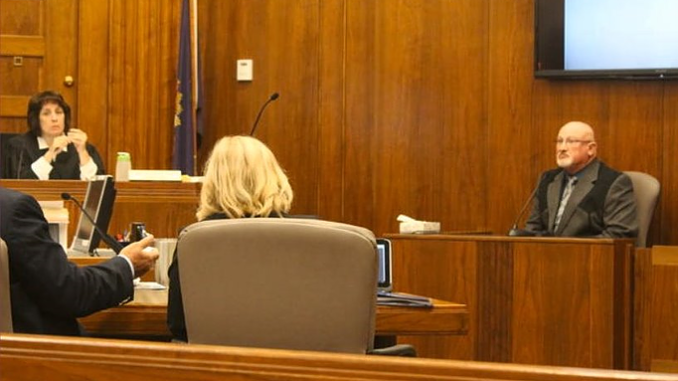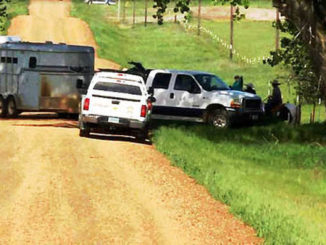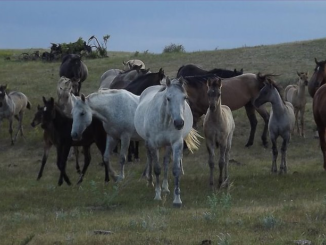
“The implications of this case for farmers and ranchers across the state of North Dakota are huge. If Stark County can ultimately prosecute Gary Dassinger for these charges, then look out. Because the North Dakota you and I grew up in is gone…”
I wrote those words way back in June when I first wrote about “The Tragic Story of North Dakota Rancher Gary Dassinger” . Just in case you’re not familiar with it, Dassinger is being put through the wringer on charges of animal abuse and neglect. Charges based on a 2013 law passed in North Dakota with the support of the Humane Society of the United States (HSUS).
In addition to the aforementioned introductory article to the story, you can catch up on The Minuteman’s take on the situation here:
1. “Unthinkable & UnAmerican: Government’s Abuse of Gary Dassinger”
2. “Justice for Gary Dassinger Will be Found in an Informed Jury”
3. “Is the Seizure Order in the Dassinger Case Illegal?”
4. “Judge Rules in Favor of Dassinger but 23 Page Order Problematic”
One of the expected moves on the part of the defense was that they would tackle the constitutional implications of the case. More specifically, the issues of illegal search and seizure– something prohibited by not only the United States Constitution, but the North Dakota Constitution as well.
On September 6th, defense attorney Thomas Murtha did as expected and filed the motion to dismiss the criminal charges against Gary Dassinger. On Tuesday, a hearing was held at the Stark County Courthouse where the defense argued that:
“All evidence obtained from that illegal search should be suppressed in this proceeding because the search was illegal.”
And why was it illegal? According to Murtha:
“On April 22, 2017, and at other times thereafter, law enforcement and Dr. (Kim) Brummond, acting on behalf of law enforcement, searched Mr. Dassinger’s property without a warrant and without consent.”
Now here’s the part that drives limited government folks like me crazy. Stark County Assistant State’s Attorney Amanda Engelstad claims that:
“Fourth Amendment protections do not apply to the defendant’s pastures and pens under the ‘open fields doctrine’.”
And get this one:
“…pens that were entered and pastures that are fenced off are clearly outside the curtilage of the Defendant’s residence and therefore no Fourth Amendment protections apply.”
And it doesn’t stop there. Englestad also claims that from Dassinger’s house to the yearlings was:
“…a substantial distance and would not be considered an adjunct of the home.”
What is Stark County claiming as a “substantial distance”? 60 feet.
That’s right. If Stark County gets their way, the constitutional protections that North Dakotan’s should enjoy simply won’t exist anymore.
Let me put this in more direct terms for you. If Southwest District Judge Rhonda Ehlis rules in favor of Stark County to proceed with the trial, then the precedent may well be set that we have absolutely no constitutional protections against unreasonable search and seizure “outside the curtilage of [a person’s] residence”. Let that one soak in for a while.
Following the hearing, Gary Dassinger summed it all up the best by saying that if Stark County wins then:
“…the Fourth Amendment doesn’t really exist except for your little bitty residence.
“Everybody is just like me (and) thinks your property is a right to privacy, and I think the Founding Fathers thought it should be and they’re trying to take that away.”
In addition to the horrendous implications if Stark County gets their way, there’s also another problem with this situation– at least in my opinion. Why is Judge Rhonda Ehlis allowed to be the one to make the determination of whether Murtha’s request is granted or not? After all, Ehlis is the same judge that presided over the hearings in regards to the seizure order earlier this year.
And while Judge Ehlis ultimately ruled in Dassinger’s favor by denying Stark County’s petition to seize his animals, it wasn’t without her expressing the opinion that – according to the awful 2013 law – Dassinger was guilty of neglect on April 22, 2017. While on the other hand, she says that by May 18, 2017 – when the Petition for Disposition of Seized Animal was made – that “seizure and disposition were no longer appropriate”.
Is Ehlis objective enough to give Gary Dassinger the consideration he deserves in this request for dismissal? Or is she so biased with the idea of his being “guilty” that it’s nearly impossible for him to get a fair judgment from her?
I don’t pretend to know exactly what Judge Ehlis will do. Unfortunately, I have a feeling she will side with Stark County. Nevertheless, the North Dakota Supreme Court’s “Rule 41” explains the purpose behind suppression and dismissal when it comes to illegal search and seizure:
“Rule 41 is an adaptation of Fed.R.Crim.P. 41 and is designed to implement the provisions of Article I, Section 8, of the North Dakota Constitution and the Fourth Amendment to the United States Constitution, which guarantee, “The right of the people to be secure in their persons, houses, papers and effects against unreasonable searches and seizures shall not be violated; and no warrant shall issue but upon probable cause, supported by oath or affirmation, particularly describing the place to be searched and the persons and things to be seized.”To implement this constitutional protection, an illegal search and seizure will bar the use of such evidence in a criminal prosecution. The suppression sanction is imposed in order to discourage abuses of power by law enforcement officials in conducting searches and seizures .” (Emphasis Added)
Now, lest anyone think that this move on the part of defense attorney Thomas Murtha is an admission of guilt, think again. Murtha is simply utilizing a historically effective legal maneuver to end a case that never should have existed in the first place. And in the process he may well be working to protect the inherent right of all of us against “abuses of power”.
If the case against Gary Dassinger is allowed to move forward, Stark County will then be permitted to send a message to all of North Dakota and its property owners that the property we thought was private wasn’t really private at all. It’s public. All but maybe your “little bitty residence”.
——————————
“Next to the right of liberty, the right of property is the most important individual right guaranteed by the Constitution and the one which, united with that of personal liberty, has contributed more to the growth of civilization than any other institution established by the human race.”–William Howard Taft
Sources:
1. https://theminutemanblog.com/single-post/2017/06/15/The-Tragic-Story-of-North-Dakota-Rancher-Gary-Dassinger 2. https://theminutemanblog.com/single-post/2017/06/16/Unthinkable-UnAmerican-Governments-Abuse-of-Gary-Dassinger 3. https://theminutemanblog.com/single-post/2017/06/21/Justice-for-Gary-Dassinger-Will-be-Found-in-an-Informed-Jury 4. https://theminutemanblog.com/single-post/2017/07/05/Is-the-Seizure-Order-in-the-Dassinger-Case-Illegal 5. https://theminutemanblog.com/single-post/2017/07/12/Judge-Rules-in-Favor-of-Dassinger-but-23-Page-Order-Problematic 6. http://www.legis.nd.gov/constit/a01.pdf
7. https://www.ndcourts.gov/Court/Rules/Criminal/Rule41.htm
8. http://www.thedickinsonpress.com/news/crime-and-courts/4334340-attorneys-spar-over-privacy-rights-potential-animal-neglect-case





